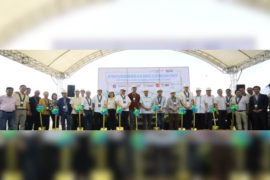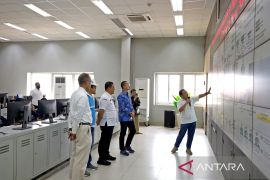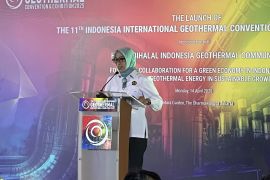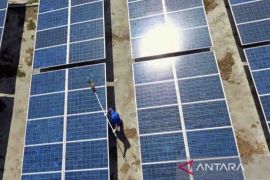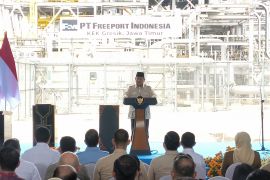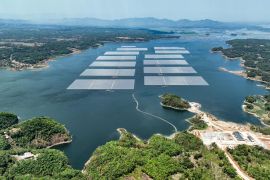"Construction of the new plant will be started in July 2012 and is expected to finish in 2013," the SEID president director said here on Thursday.
He added that the plant is being built to anticipate the increasing demand of refrigerators and washing machines.
He projected the ownership rate of refrigerators and washing machines in the country would reach, respectively, 45 percent and 15 percent in 2016, up from 35 percent and 15 percent in 2010.
"Sharp wishes to maintain its electronics market share above 25 percent in Indonesia," Irie said. Right now, he added, Sharp controls 31 percent of the refrigerator market and 36 percent of the washing machine market.
He said the new plant in the Karawang International Industry City (KIIC) area would be located on 30 hectares and would have a capacity of producing 220,000 refrigerators per month or 2.64 million units per year and 140,000 washing machines per month, or 1.68 millions per year.
The refrigerator production capacity of the new plant is twice as large as the existing plant in Pulau Gadung, East Jakarta, while the capacity of its washing machine production is 2.5 times larger than the Pulau Gadung plant.
"So, the new plant will be the largest household plant in Indonesia, and even the largest Sharp plant in the world," he said.
Irie said the new plant in Karawang would focus on producing small to medium refrigerators with a maximum capacity of 300 liters. "We will import larger refrigerators from Thailand for the Indonesian market," he said.
The plant will also produce two-tube washing machines, he said, adding most of the plant`s products will be intended for the Indonesian market.
"Exports will be minimum, as our concept is manufacturing products based on local demand for local consumption," he said.
He noted that after the new plant is operating in 2013, the old plant in Pulau Gadung would stop producing refrigerators and washing machines, but would continue to operate to produce CRT and LCD television sets, and as a service center.
"SEID`s contribution to Sharp`s revenue in the ASEAN region will reach 50 to 55 percent," he said, without mentioning sales figures.
(SYS/KR-BSR/A014)
Editor: Suryanto
Copyright © ANTARA 2012



